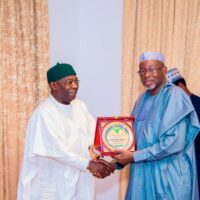Uk says WikiLeaks leader will be arrested, despite UN panel’s report
Uk says WikiLeaks leader will be arrested, despite UN panel’s report
Friday, February 5, 2016 5:12 pm
“The Working Group on Arbitrary Detention considers that the various forms of deprivation of liberty to which Julian Assange has been subjected constitute a form of arbitrary detention,” the group’s head, Seong-Phil Hong, said in a statement.
“(It) maintains that the arbitrary detention of Mr Assange should be brought to an end, that his physical integrity and freedom of movement be respected, and that he should be entitled to an enforceable right to compensation.”
Ecuador’s foreign minister, Ricardo Patino, said Assange must be allowed to go free. “What more do they want to be accused of before they start to rectify their error?” he told South American broadcaster Telesur, in reference to Britain and Sweden. Patino said Ecuador was analysing its next steps.
NO CHANGE
The decision in his favour marks the latest twist in a tumultuous journey for Assange since he incensed Washington with leaks that laid bare often highly critical U.S. appraisals of world leaders from Vladimir Putin to the Saudi royal family.
In 2010, the group released over 90,000 secret documents on the U.S.-led military campaign in Afghanistan, followed by almost 400,000 U.S. military reports detailing operations in Iraq. Those disclosures were followed by release of millions of diplomatic cables dating back to 1973.
The U.N. Working Group does not have the authority to order the release of a detainee – and Friday’s ruling in unlikely to change the legal issues facing Assange – but it has considered many high-profile cases and its backing carries a moral weight that puts pressure on governments.
High-profile cases submitted to the U.N. panel include that of jailed former Maldives President Mohamed Nasheed and of Washington Post reporter Jason Rezaian, an Iranian-American jailed in Iran until a prisoner swap last month.
But governments have frequently brushed aside its findings such as a ruling on Myanmar’s house arrest of opposition leader Aung San Suu Kyi in 2008, a call in 2006 for the Iraqi government not to hang former dictator Saddam Hussein, and frequent pleas for the closure of the U.S. military prison at Guantanamo Bay.
“Julian Assange is a fugitive from justice. He is hiding from justice in the Ecuadorian embassy,” British foreign minister Philip Hammond said. “This is frankly a ridiculous finding by the working group and we reject it.”
Swedish prosecutors said the U.N. decision had no formal impact on the rape investigation under Swedish law. A U.S. Grand Jury investigation into WikiLeaks is ongoing.

 9 hours ago
9 hours ago  13 hours ago
13 hours ago  13 hours ago
13 hours ago  14 hours ago
14 hours ago  15 hours ago
15 hours ago  15 hours ago
15 hours ago  15 hours ago
15 hours ago  17 hours ago
17 hours ago
Join The Conversation